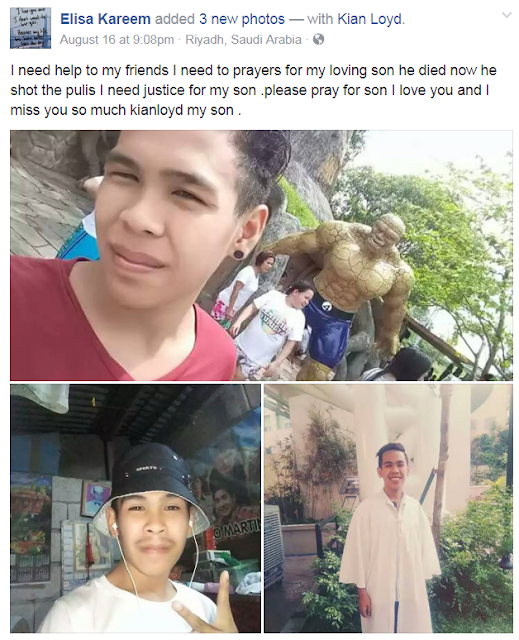Outrage and Politics
An in-depth exploration of issues takes quite some time and effort. For most, it is boring especially compared to a quick fix of political bile. The immediate sense of self-righteousness is truly seductive and addictive. The problem, as in any addiction, is that we then fail to engage genuinely in the real issues, making it difficult for all of us to reach a meaningful and productive discussion. The world is facing various threats. There is terror. Such threat is so serious that we are quite ready to accept measures from our leaders that may even curtail our own liberties. In the Philippines, drug abuse is currently considered as the greatest threat to society. With this is mind, one should be able to understand why its current president, Rodrigo Duterte, would say, "The ones who died recently in Bulacan, 32, in a massive raid, that was good. If we could kill another 32 every day, then maybe we can reduce what ails this country." Just imagine, if in either Europe or the United States, it is reported that 32 terrorists have been killed, it would not be unreasonable for a leader to wish that more terrorists get captured or killed. However, as a civilized society, we still demand due process, we still want basic human rights to be protected. Most Americans opposed the immigration policy that banned Muslims from entering the country. We can indeed discuss and debate these issues. We can study and understand these issues. We can even find solutions. Sadly, as we allow these issues to degenerate into political footballs, we are basically shortchanging our democratic system.
What the opposition does to the drug war is truly lamentable especially when evidence is so clear regarding how a war on drugs often fails. One need not go far to find a clear demonstration of failure. The Cato Institute in the United States considers the war on drugs as four decades of failure:
In the war on drugs in the Philippines, a 17-year old was among its most recent casualties. Kian Loyd Delos Santos was not resisting arrest. In fact, he was being carried by policemen as shown on a close-circuit television footage. Kian's mother, an overseas worker, pleads for justice.
 |
| Above copied from Elisa Kareem's Facebook page |
The war on drugs in the Philippines has claimed thousands of lives. It is a war that is currently waged with a corrupt police force and a weak judicial system. Yet, the issue has always been equated to unseating the current president of the Philippines.
GetRealPhilippines calls our attention to turning the tragedy of Kian Loyd to a mere political artefact:
 |
| Above copied from Get Real Post |
What the opposition does to the drug war is truly lamentable especially when evidence is so clear regarding how a war on drugs often fails. One need not go far to find a clear demonstration of failure. The Cato Institute in the United States considers the war on drugs as four decades of failure:
The evidence is clear that the drug war in the United States has affected disproportionately the poor and black people. The drug war in the United States has led to police militarization and recent cases have even demonstrated where police were planting evidence. What is happening in the Philippines is no different. What should be made clear, however, is that this is not Duterte's exclusive problem. Using this issue as a political football only transforms cases of extrajudicial killings into a travesty.

Comments
Post a Comment